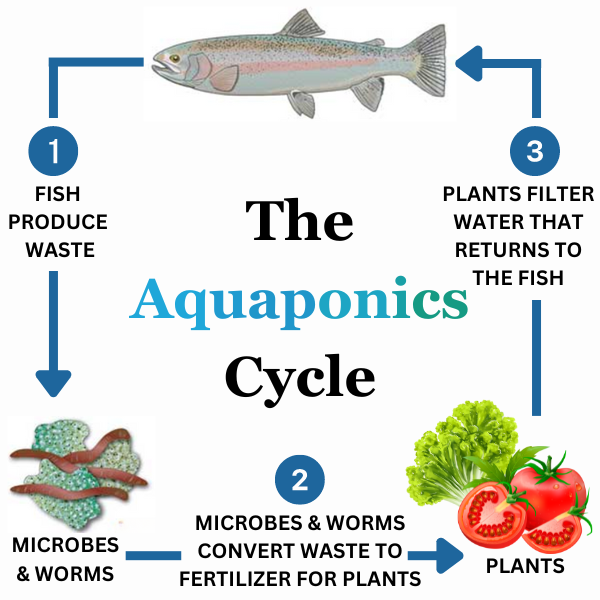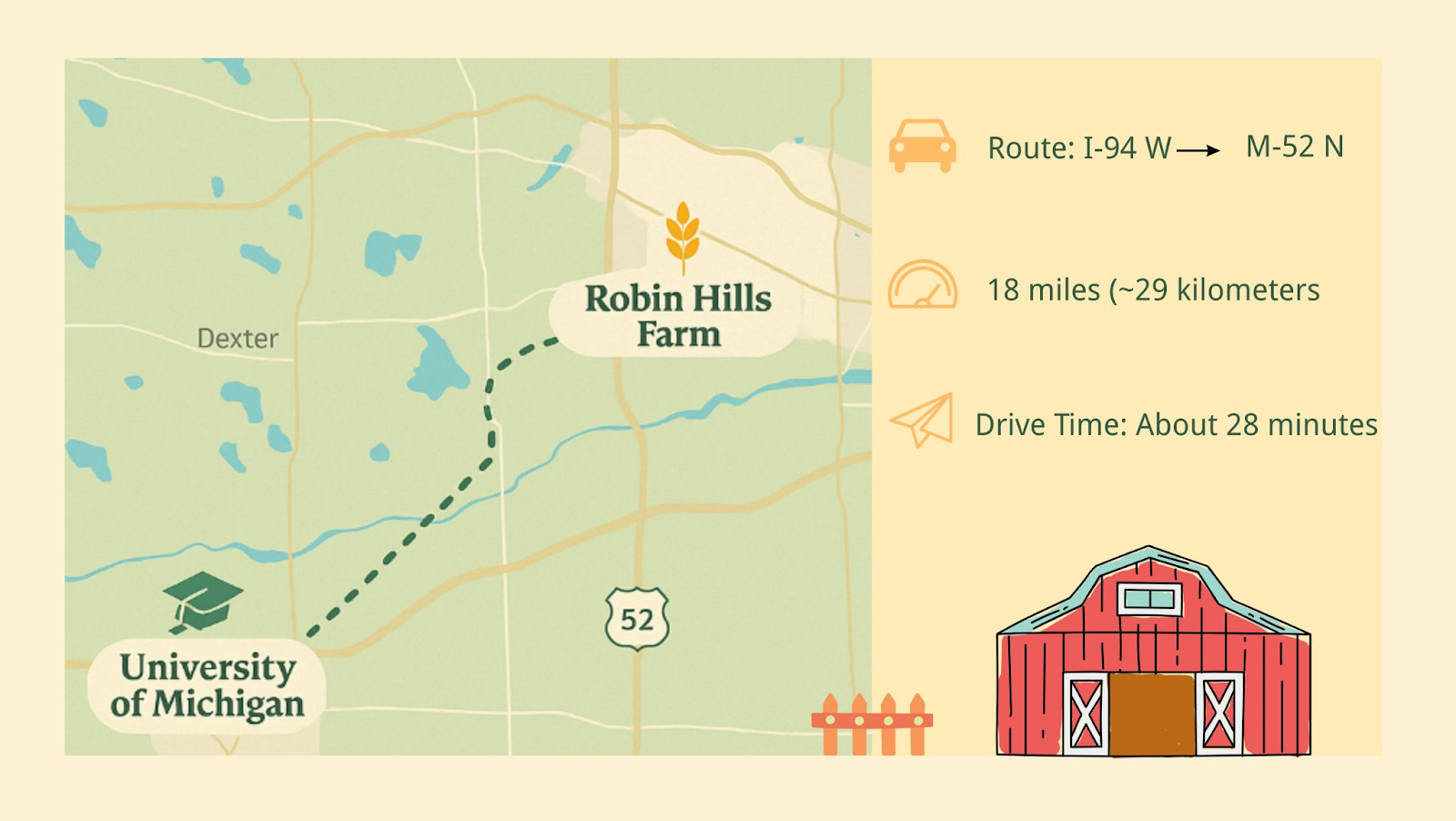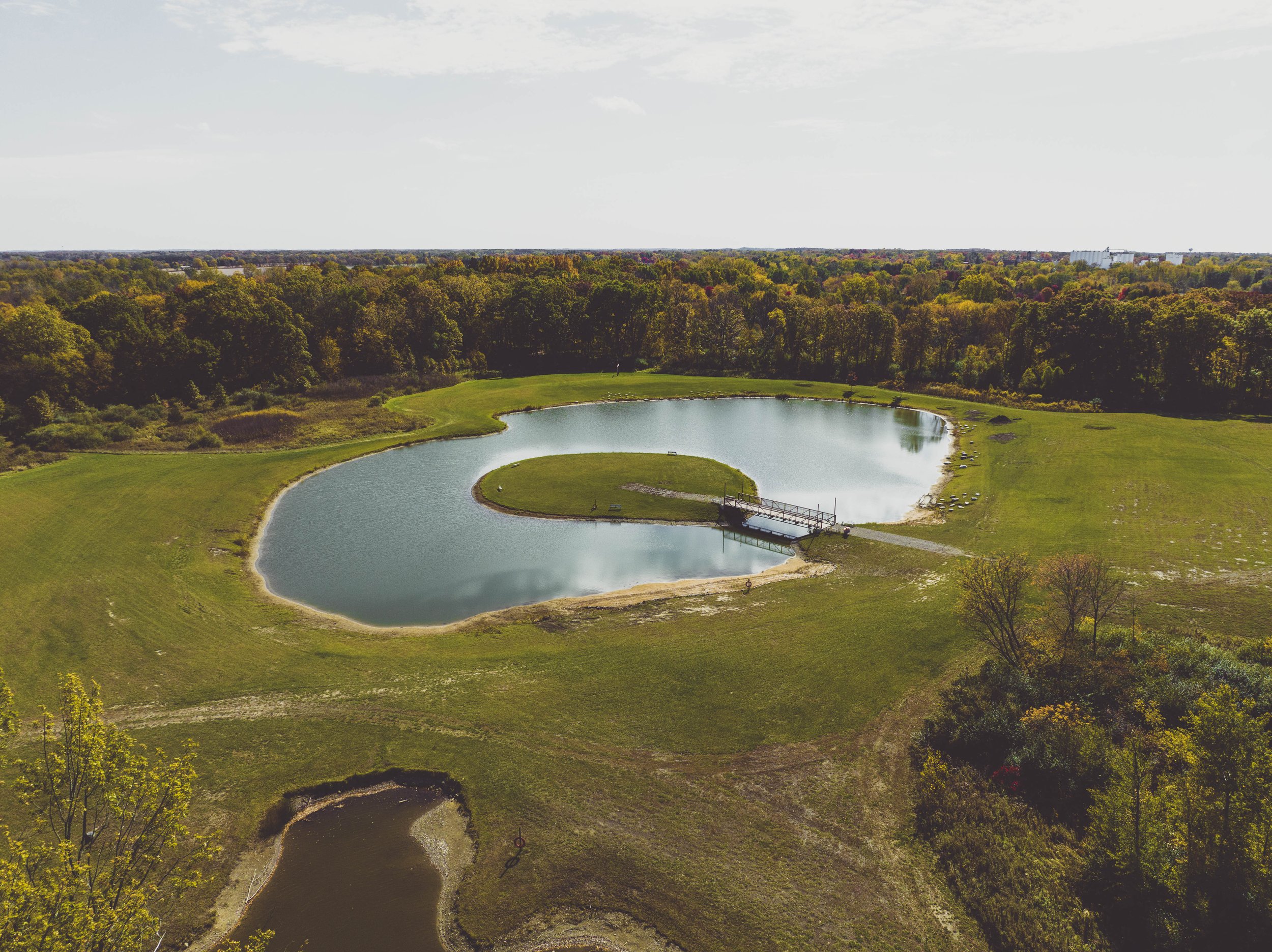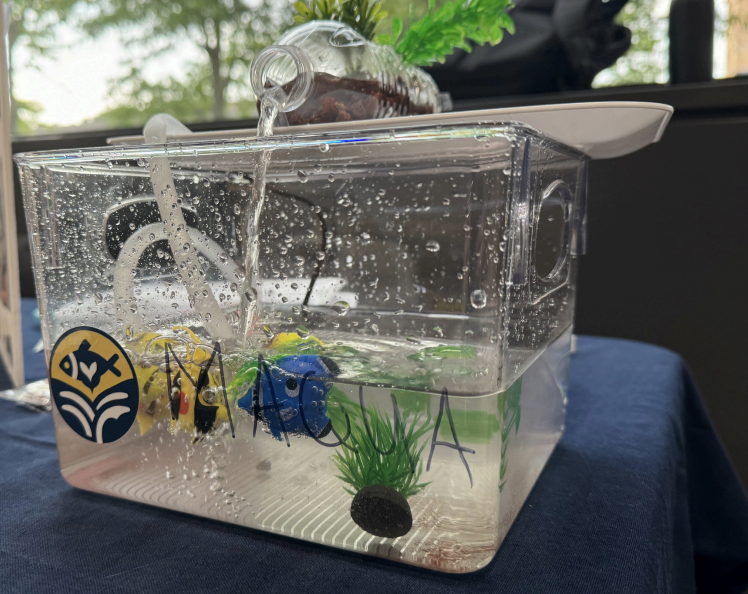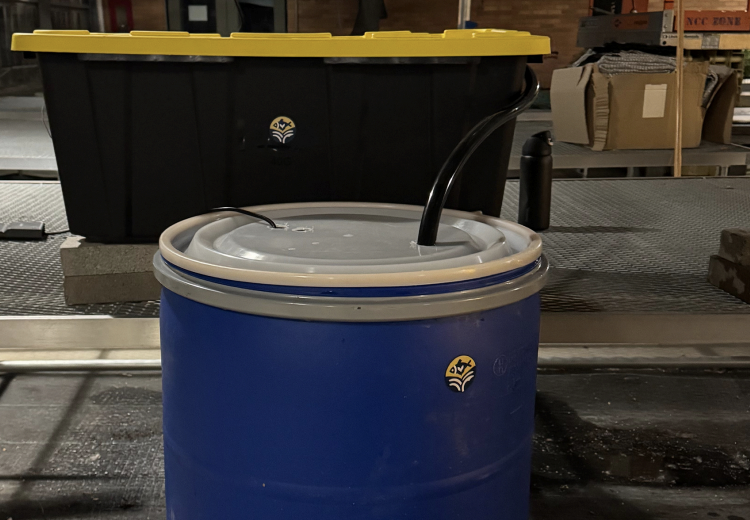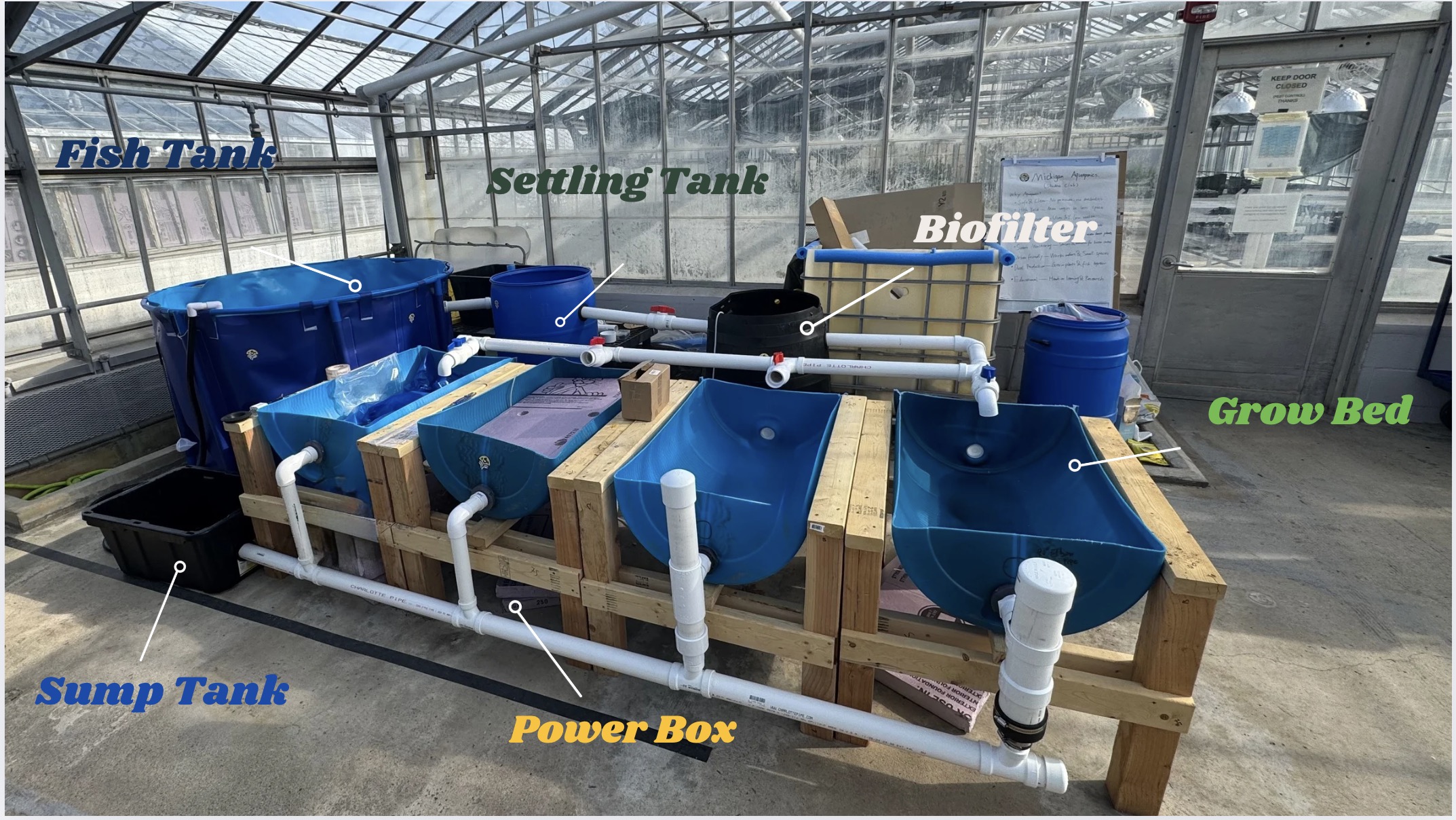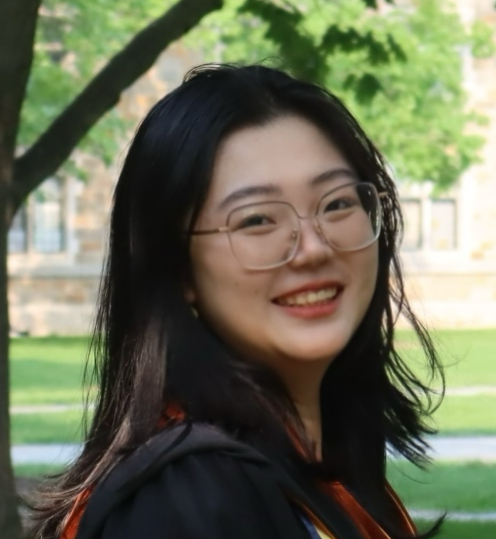Who Are We?
We’re an interdisciplinary student team from the University of Michigan working to explore the future of sustainable food through aquaponics. Our members come from backgrounds like engineering, business, ecology, and computer science — and together, we’re building systems that combine plants, aquatic animals, and technology. One of our main focuses is developing smart, automated systems that make aquaponics easier to manage and more efficient. Whether it’s through hands-on experiments, sensor-based monitoring, or community outreach, we’re here to learn, build, and make an impact.
What is Aquaponics?
Aquaponics is a sustainable farming method that combines aquaculture (raising fish or shrimp) with hydroponics (growing plants without soil). In this closed-loop system, waste produced by the aquatic animals provides nutrients for the plants, and in turn, the plants help filter and clean the water, which is then recirculated back to the tank.
This natural cycle significantly reduces water usage compared to traditional farming, eliminates the need for chemical fertilizers, and allows for year-round food production in controlled environments. Aquaponics is used in urban farming, education, research, and even commercial food systems, offering an eco-friendly way to grow both protein and vegetables together.
Where Do We Work?
We’re proud to be working with Robin Hills Farm in Chelsea, Michigan — a local hub for sustainability, education, and regenerative agriculture. Just about a 28-minute drive from Central Campus, the farm gives us a peaceful and practical space to build, test, and improve our aquaponics systems outside the classroom. Robin Hills previously operated its own aquaponics setup and, like us, believes in the power of closed-loop food production. Our missions are deeply aligned — combining environmental responsibility, community education, and innovation. We feel incredibly lucky to be collaborating with a team that shares our vision, and we’re excited to bring a new generation of smart, student-driven systems to life in partnership with them.
Proudly Sponsored By
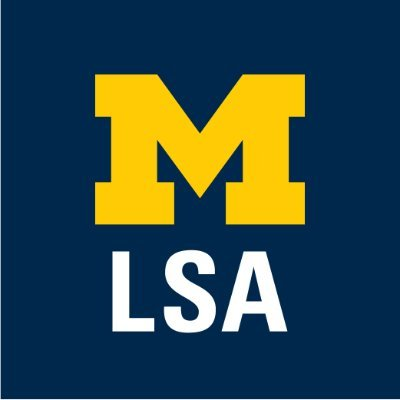 University of Michigan
University of MichiganCollege of LSA
 University of Michigan
University of MichiganCollege of Engineering
